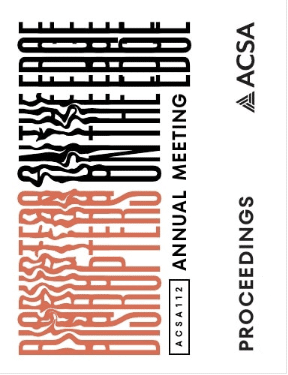Author(s): Mona El Khafif
How are we learning to collaborate and co-design with community stakeholders when traditional real-world engagement processes are not in sync with the requirements of semester schedules or could burden the communities we try to serve? What are the emerging techniques and pedagogical mechanisms that we can test and explore to allow for a learning environment that facilitates for urban design in action? Working with the Trust for Public Land (TPL) and a fictional Community School Yard project in East Cleveland, the presented research is based on the long legacy of TPL’s program that pioneered a new model for environmental leadership and community stewardship. Since 1996, the program transformed over 200 formerly paved schoolyards into community schoolyards in New York City alone. Today, TPL works across the nation and the model points at a future where community schoolyards could become standard practice, addressing the open space equity gab of our cities, and serving as excellent precedents for co-production and alliance building. This paper reflects on a seminar that implemented game mechanisms to introduce students to co-production strategies while designing a public space network with adjacent neighborhood communities. The paper introduces precedents and theories that investigate participatory design methods and shows how roleplays can help to stage real-world dynamics. The discussion includes design strategies that put the integration of game mechanisms at the project’s core and concludes with a reflection on a pedagogical framework exploring an emerging field around game scenarios, simulation games, and storytelling as an essential part of our disciplinary canon.
https://doi.org/10.35483/ACSA.AM.112.106
Volume Editors
Germane Barnes & Blair Satterfield
ISBN
978-1-944214-45-6

 Study Architecture
Study Architecture  ProPEL
ProPEL 
